Associate Editors
JEM associate editors are leading scientists in the early stages of their independent careers with research expertise that widens and complements the expertise of JEM academic editors on at least one of the research areas within the scope of the journal. The JEM Associate Editorial Board is designed to involve early career principal investigators in the journal’s collaborative editorial process. Associate editors support scientific and academic editors in making informed decisions on a subset of manuscripts in their research area. Associate editors are appointed for a one-year term without any option for renewal.
Current Associate Editors
Semir Beyaz
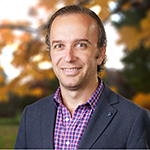 Dr. Semir Beyaz is an Assistant Professor at Cold Spring Harbor Laboratory and Director of the Seckin Endometriosis Research Center for Women’s Health. He received his PhD in immunology from Harvard University in 2017. His early work helped define epigenetic and nutrient-sensing pathways that control immune cell lineage identity and intestinal stem cell function, linking aberrant regenerative fitness and impaired immune surveillance to cancer risk. The Beyaz laboratory now investigates how environmental inputs, including nutrients and the microbiome, reprogram the fitness of immune cells and epithelial stem cells through metabolic and epigenetic mechanisms to influence tissue regeneration, immune surveillance, and cancer. More recently, the lab has extended this framework to endometrium biology and endometriosis, examining how altered cellular fitness drives chronic inflammatory remodeling, with the goal of advancing improved diagnostics and disease-modifying therapies.
Dr. Semir Beyaz is an Assistant Professor at Cold Spring Harbor Laboratory and Director of the Seckin Endometriosis Research Center for Women’s Health. He received his PhD in immunology from Harvard University in 2017. His early work helped define epigenetic and nutrient-sensing pathways that control immune cell lineage identity and intestinal stem cell function, linking aberrant regenerative fitness and impaired immune surveillance to cancer risk. The Beyaz laboratory now investigates how environmental inputs, including nutrients and the microbiome, reprogram the fitness of immune cells and epithelial stem cells through metabolic and epigenetic mechanisms to influence tissue regeneration, immune surveillance, and cancer. More recently, the lab has extended this framework to endometrium biology and endometriosis, examining how altered cellular fitness drives chronic inflammatory remodeling, with the goal of advancing improved diagnostics and disease-modifying therapies.
Coco Chu
 Coco Chu, PhD, received her doctorate from the Institute for Immunology, Tsinghua University in 2015. She conducted her postdoctoral research at Weill Cornell Medicine, Cornell University, from 2015 to 2020, after which she was promoted to Instructor of Immunology and served in that role from 2020 to 2022. In 2022, she joined the Institute for Immunology, Tsinghua University as an Assistant Professor of Neuroimmunology and was promoted to Associate Professor in 2025. The Chu Laboratory strives to understand the interactions between the microbiota, immune system, and nervous system, to discover previously unrecognized crosstalk, to unveil underlying molecular mechanisms, and to help develop the next generation of preventative, therapeutic, or curative treatment strategies.
Coco Chu, PhD, received her doctorate from the Institute for Immunology, Tsinghua University in 2015. She conducted her postdoctoral research at Weill Cornell Medicine, Cornell University, from 2015 to 2020, after which she was promoted to Instructor of Immunology and served in that role from 2020 to 2022. In 2022, she joined the Institute for Immunology, Tsinghua University as an Assistant Professor of Neuroimmunology and was promoted to Associate Professor in 2025. The Chu Laboratory strives to understand the interactions between the microbiota, immune system, and nervous system, to discover previously unrecognized crosstalk, to unveil underlying molecular mechanisms, and to help develop the next generation of preventative, therapeutic, or curative treatment strategies.
Erin M. Gibson
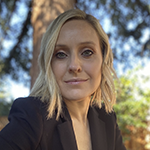 Dr. Gibson is a neuroscientist and Assistant Professor at Stanford University School of Medicine. She received her Bachelor of Science from Duke University and her PhD in Behavioral Neuroscience at the University of California, Berkeley studying the role of the circadian system in homeostatic processes, including neuroendocrine, immune, and neural stem cell regulation. As a postdoctoral scholar at Stanford University, Dr. Gibson studied the effect of neuronal activity on myelin microstructure in health and disease. Dr. Gibson’s lab focuses on understanding how glial cells modulate neural circuits throughout development and in brain disorders, with a focus on the intersection between sleep/circadian and glial biology in disorders such as autism spectrum disorders, multiple sclerosis, and Alzheimer’s disease. By using in vivomouse and patient-derived iPSC in vitro models, the Gibson lab aims to understand the intrinsic molecular drivers and cell–cell interactions that regulate myelin dynamics throughout life, with the ultimate goal of finding therapeutic strategies to maintain myelin health.
Dr. Gibson is a neuroscientist and Assistant Professor at Stanford University School of Medicine. She received her Bachelor of Science from Duke University and her PhD in Behavioral Neuroscience at the University of California, Berkeley studying the role of the circadian system in homeostatic processes, including neuroendocrine, immune, and neural stem cell regulation. As a postdoctoral scholar at Stanford University, Dr. Gibson studied the effect of neuronal activity on myelin microstructure in health and disease. Dr. Gibson’s lab focuses on understanding how glial cells modulate neural circuits throughout development and in brain disorders, with a focus on the intersection between sleep/circadian and glial biology in disorders such as autism spectrum disorders, multiple sclerosis, and Alzheimer’s disease. By using in vivomouse and patient-derived iPSC in vitro models, the Gibson lab aims to understand the intrinsic molecular drivers and cell–cell interactions that regulate myelin dynamics throughout life, with the ultimate goal of finding therapeutic strategies to maintain myelin health.
Benjamin G. Hale
 Benjamin G. Hale is Full Professor of Medical Virology at the University of Zurich, Switzerland. He earned his PhD in molecular virology studying influenza virus virulence factors under the supervision of Rick Randall at the University of St Andrews, Scotland. He then did postdoctoral training in innate immunity with Adolfo Garcia-Sastre at the Icahn School of Medicine at Mount Sinai in New York, USA. His current research focuses on fundamental aspects of virus–host interactions and molecular immunology. In particular, his group is interested in the human interferon system and combines basic research with clinical cohort studies to uncover mechanisms underlying human susceptibility to viral disease and the potential to mitigate susceptibility with new therapeutic strategies.
Benjamin G. Hale is Full Professor of Medical Virology at the University of Zurich, Switzerland. He earned his PhD in molecular virology studying influenza virus virulence factors under the supervision of Rick Randall at the University of St Andrews, Scotland. He then did postdoctoral training in innate immunity with Adolfo Garcia-Sastre at the Icahn School of Medicine at Mount Sinai in New York, USA. His current research focuses on fundamental aspects of virus–host interactions and molecular immunology. In particular, his group is interested in the human interferon system and combines basic research with clinical cohort studies to uncover mechanisms underlying human susceptibility to viral disease and the potential to mitigate susceptibility with new therapeutic strategies.
Guideng Li
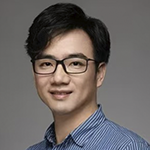 Dr. Guideng Li is the Deputy Director of the Suzhou Institute of Systems Medicine at the Chinese Academy of Medical Sciences. He earned his PhD in immunology from the University of California, Irvine in 2012 and completed his postdoctoral training at the California Institute of Technology (Caltech) under Nobel laureate David Baltimore. Dr. Li currently leads the Laboratory of Engineering T Cell Immunity, which focuses on elucidating the molecular mechanisms that govern effective versus dysfunctional immune responses in chronic diseases. Leveraging these mechanistic insights, his team aims to develop innovative therapeutic strategies with strong potential for clinical translation.
Dr. Guideng Li is the Deputy Director of the Suzhou Institute of Systems Medicine at the Chinese Academy of Medical Sciences. He earned his PhD in immunology from the University of California, Irvine in 2012 and completed his postdoctoral training at the California Institute of Technology (Caltech) under Nobel laureate David Baltimore. Dr. Li currently leads the Laboratory of Engineering T Cell Immunity, which focuses on elucidating the molecular mechanisms that govern effective versus dysfunctional immune responses in chronic diseases. Leveraging these mechanistic insights, his team aims to develop innovative therapeutic strategies with strong potential for clinical translation.
Esther Obeng
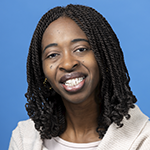 Dr. Esther Obeng is an Associate Professor in the Department of Pediatrics at Emory University School of Medicine and an Attending Physician in the Bone Marrow Transplant Service at the Aflac Cancer and Blood Disorders Center/Children’s Healthcare of Atlanta. Dr. Obeng received her MD and PhD from the University of Miami in Coral Gables, Florida. She completed her residency in the Boston Combined Residency Program in Pediatrics and Pediatric Hematology/Oncology fellowship training at the Dana-Farber Cancer Institute and Boston Children’s Hospital. Her postdoctoral training was in the laboratory of Dr. Benjamin Ebert, where she generated the first mouse model of the most frequently mutated gene in myelodysplastic syndrome, the splicing factor SF3B1. She is the recipient of a Harold Amos Medical Faculty Development Award from the American Society of Hematology and the Robert Wood Johnson Foundation and the Gertrude B. Elion Cancer Research Award from the American Association for Cancer Research. Dr. Obeng’s independent research program continues to be focused on the genomics of myeloid malignancies and deciphering how acquired splicing factor and epigenetic regulator mutations lead to pre-leukemic conditions such as myelodysplastic syndrome and clonal hematopoiesis. She is also leading translational research studies to determine the incidence and clinical significance of clonal hematopoiesis in pediatric cancer survivors and patients with sickle cell disease.
Dr. Esther Obeng is an Associate Professor in the Department of Pediatrics at Emory University School of Medicine and an Attending Physician in the Bone Marrow Transplant Service at the Aflac Cancer and Blood Disorders Center/Children’s Healthcare of Atlanta. Dr. Obeng received her MD and PhD from the University of Miami in Coral Gables, Florida. She completed her residency in the Boston Combined Residency Program in Pediatrics and Pediatric Hematology/Oncology fellowship training at the Dana-Farber Cancer Institute and Boston Children’s Hospital. Her postdoctoral training was in the laboratory of Dr. Benjamin Ebert, where she generated the first mouse model of the most frequently mutated gene in myelodysplastic syndrome, the splicing factor SF3B1. She is the recipient of a Harold Amos Medical Faculty Development Award from the American Society of Hematology and the Robert Wood Johnson Foundation and the Gertrude B. Elion Cancer Research Award from the American Association for Cancer Research. Dr. Obeng’s independent research program continues to be focused on the genomics of myeloid malignancies and deciphering how acquired splicing factor and epigenetic regulator mutations lead to pre-leukemic conditions such as myelodysplastic syndrome and clonal hematopoiesis. She is also leading translational research studies to determine the incidence and clinical significance of clonal hematopoiesis in pediatric cancer survivors and patients with sickle cell disease.
João Pereira
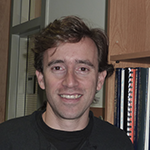 João Pereira, PhD, is a tenured Professor in the Department of Immunobiology and a member of the Yale Stem Cell Center at Yale University. His research focuses on niche cell subsets and niche-derived signals controlling hematopoietic stem cells and lymphopoiesis. His laboratory uses in vivo imaging, multi-omics, and advanced mouse models to investigate how microenvironmental cues control stem and progenitor cell positioning, migration, and lineage fate, with the goal of uncovering fundamental principles of immune system development, organization, and function.
João Pereira, PhD, is a tenured Professor in the Department of Immunobiology and a member of the Yale Stem Cell Center at Yale University. His research focuses on niche cell subsets and niche-derived signals controlling hematopoietic stem cells and lymphopoiesis. His laboratory uses in vivo imaging, multi-omics, and advanced mouse models to investigate how microenvironmental cues control stem and progenitor cell positioning, migration, and lineage fate, with the goal of uncovering fundamental principles of immune system development, organization, and function.
Pamela Rosato
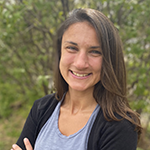 Dr. Pamela Rosato is an Assistant Professor in the Department of Microbiology and Immunology at the Geisel School of Medicine at Dartmouth, where she has been contributing since 2020. She earned her PhD at Dartmouth and trained as a postdoc with David Masopust at the University of Minnesota. Her lab investigates tissue-resident memory T cell biology in the context of healthy and malignant tissue with a particular focus on the brain.
Dr. Pamela Rosato is an Assistant Professor in the Department of Microbiology and Immunology at the Geisel School of Medicine at Dartmouth, where she has been contributing since 2020. She earned her PhD at Dartmouth and trained as a postdoc with David Masopust at the University of Minnesota. Her lab investigates tissue-resident memory T cell biology in the context of healthy and malignant tissue with a particular focus on the brain.
Past Associate Editors
2025
María Casanova-Acebes, Centro Nacional de Investigaciones Oncológicas (CNIO, Madrid).
David Gate, Feinberg School of Medicine at Northwestern University.
Elisa Oricchio, EPFL in Lausanne, Switzerland.
Tim O’Sullivan, University of California, Los Angeles.
Ashley St. John, Duke-NUS Medical School and National University of Singapore.
Tuoqi Wu, University of Texas Southwestern Medical Center.
2024
Elena Hsieh, University of Colorado Anschutz School of Medicine
Caroline Menard, Universite Laval, Quebec City, Canada.
Stefani Spranger, MIT.
Franklin Zhong, Lee Kong Chian School of Medicine in Singapore.
Advertisement




